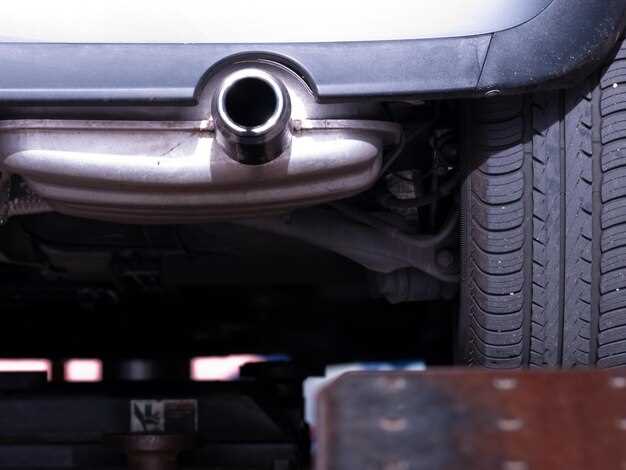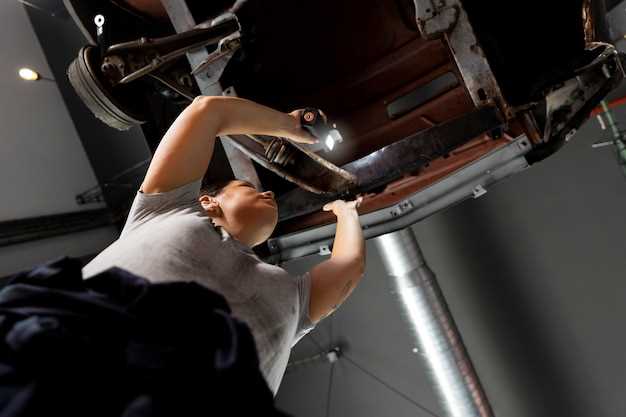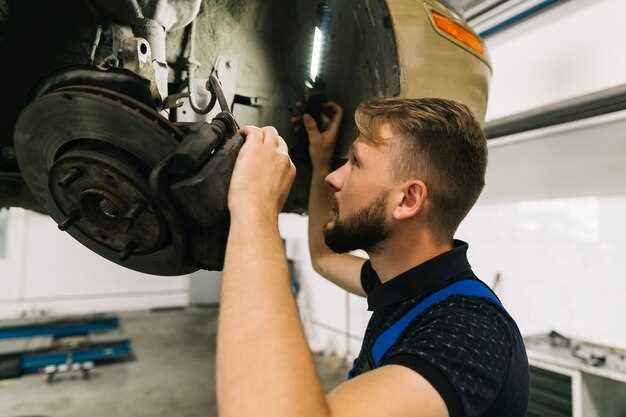
How to Maintain Your Car’s Exhaust System
- Arthur Rodriquez
- 0
- Posted on

Your car’s exhaust system is a critical component that plays a significant role in its overall performance and efficiency. Regular maintenance of this system not only ensures that your vehicle runs smoothly but also helps in reducing harmful emissions that can impact the environment. A well-maintained exhaust system can enhance fuel efficiency, increase engine performance, and extend the lifespan of your vehicle.
Understanding the key elements of your exhaust system, such as the muffler, catalytic converter, and exhaust pipes, is essential for effective maintenance. Routine inspections can help identify potential issues before they escalate into costly repairs. Look out for signs of wear and tear, such as unusual noises, decreased fuel efficiency, or visible rust. Addressing these concerns promptly will ensure that your exhaust system remains in optimal condition.
In addition to regular inspections, it is important to follow best practices for maintenance. This includes keeping the system clean, checking for leaks, and replacing damaged components as needed. By adhering to these guidelines, car owners can not only improve the performance of their exhaust system but also contribute to a cleaner environment by minimizing harmful emissions.
Maintaining Your Car Exhaust System: Tips and Best Practices

Proper maintenance of your car’s exhaust system is essential for achieving optimal performance and ensuring the longevity of your vehicle. Here are several tips to help you effectively maintain your exhaust system.
First and foremost, regularly inspect the exhaust system for visible signs of damage, such as rust, holes, or loose connections. Pay particular attention to the muffler and exhaust pipes, as they are often exposed to elements that can cause corrosion.
Next, listen for unusual sounds while driving. A loud rumbling or hissing noise can indicate an exhaust leak, which not only affects performance but can also be a safety hazard due to increased emissions. If you detect these sounds, have your system checked promptly.
It’s also important to keep the exhaust system clean. Over time, carbon deposits can build up, leading to clogging and reduced efficiency. Regularly checking for buildup and cleaning the system can enhance exhaust flow and performance.
Another vital aspect is to ensure that all connections are secure. Loose or damaged parts can lead to exhaust leaks and decreased performance. Regularly tightening clamps and bolts will help prevent issues related to improper sealing.
Additionally, pay attention to the exhaust emissions. If your vehicle fails an emissions test, it may indicate underlying problems within the exhaust system that require immediate attention. Addressing issues quickly can save you from costly repairs down the road.
Lastly, consider having a professional inspection annually. Mechanics can provide a thorough examination of your exhaust system, identifying potential issues that may not be apparent to the untrained eye, ensuring that your vehicle runs smoothly and efficiently.
By following these best practices, you can maintain your car’s exhaust system in optimal condition, leading to improved performance, better fuel efficiency, and reduced emissions.
Identifying Signs of Exhaust System Wear and Damage
Regular maintenance of your car’s exhaust system is crucial to ensuring optimal performance and compliance with environmental regulations. Identifying signs of wear and damage early can prevent costly repairs and maintain vehicle efficiency.
One common indication of exhaust system issues is the presence of unusual noises. If you hear a loud rumbling or hissing sound while driving, it may signal a leak or a damaged muffler. Such noises can often be traced back to holes or cracks in the exhaust components.
Another visible sign to watch for is rust or corrosion on the exhaust pipes and connections. Over time, exposure to moisture can lead to breakdown and deterioration of metal parts. If you notice any flaking or discoloration, it may be time to inspect the system more closely.
Additionally, pay attention to the smell of exhaust fumes inside or around your vehicle. A strong odor can indicate a leak, which can pose health risks due to carbon monoxide exposure. If you detect strange smells, it’s essential to have your exhaust system checked immediately.
Vibrations or changes in performance, such as a decrease in power or acceleration, can also be signs of exhaust trouble. When the exhaust system is not functioning correctly, your engine may struggle to expel gases, leading to inefficient performance.
Lastly, keep an eye on the condition of your fuel economy. A failing exhaust system can negatively affect gas mileage. If you notice an unexpected decrease in miles per gallon, this may warrant further investigation of the exhaust components.
In summary, being proactive in identifying these signs will help you maintain your exhaust system effectively, ensuring a safer driving experience and prolonging the life of your vehicle.
DIY Maintenance Steps for a Healthy Exhaust System
Maintaining your car’s exhaust system is crucial for optimal vehicle performance and emissions control. Here are some effective DIY maintenance tips to ensure your exhaust system remains healthy.
1. Regular Visual Inspections
Inspect the exhaust system regularly for signs of wear and damage. Look for rust, holes, and loose connections. Pay attention to any changes in sound; a loud exhaust can indicate a problem.
2. Check for Leaks
Perform a leak test by looking for soot marks around joints and connections. Using a soapy water solution, apply it to suspect areas and look for bubbles, indicating escaping gases.
3. Clean the Exhaust Tips
Exhaust tips can accumulate carbon buildup, which can affect performance. Use a metal polish to clean the tips regularly, ensuring a clean and clear appearance.
4. Inspect Mounting Hangers
The hangers that support the exhaust system can wear out over time. Check for cracks or breaks and replace any damaged hangers to prevent the exhaust from sagging or vibrating excessively.
5. Flush the System
Carbon deposits can accumulate inside the exhaust. Consider using a high-quality fuel additive designed to clean the system or have it professionally flushed if you notice significant buildup.
6. Monitor Performance
Pay attention to your vehicle’s performance. A decrease in power or fuel efficiency can signal issues with the exhaust system. Address any performance changes promptly to avoid further damage.
7. Schedule Professional Inspections
While regular DIY checks are essential, schedule periodic professional inspections to ensure all components are functioning properly and to catch any potential issues early.
By following these tips, you can help maintain a healthy exhaust system, ensuring your vehicle runs efficiently and minimizes emissions.
When to Seek Professional Help for Exhaust Issues

Maintaining your car’s exhaust system is crucial for both performance and safety. However, there are specific situations where seeking professional help is necessary. Here are some essential tips to determine when you should consult a mechanic:
-
Unusual Noises:
If you hear loud rumbling, hissing, or popping sounds coming from your exhaust, it may indicate a serious issue. These noises could suggest leaks or failing components that require immediate attention.
-
Visible Damage:
Check your exhaust pipes, muffler, and catalytic converter for signs of rust, holes, or corrosion. Any visible damage typically necessitates professional evaluation and repair.
-
Strong Odors:
Experiencing strong exhaust fumes or a noticeable smell of gasoline in your vehicle is a warning sign. Such odors can indicate leaks that may pose health risks.
-
Warning Lights:
If the check engine light illuminates on your dashboard, it could be related to exhaust system problems. Professional diagnostics are recommended to identify underlying issues.
-
Decreased Performance:
A sudden drop in acceleration or overall vehicle performance may relate to exhaust blockages or failures. Seeking professional help allows for proper assessment and fixes.
Regular maintenance is essential for your exhaust system; however, these indicators can highlight when it’s time to reach out to a professional. Addressing issues early can help prevent more extensive repairs in the future.